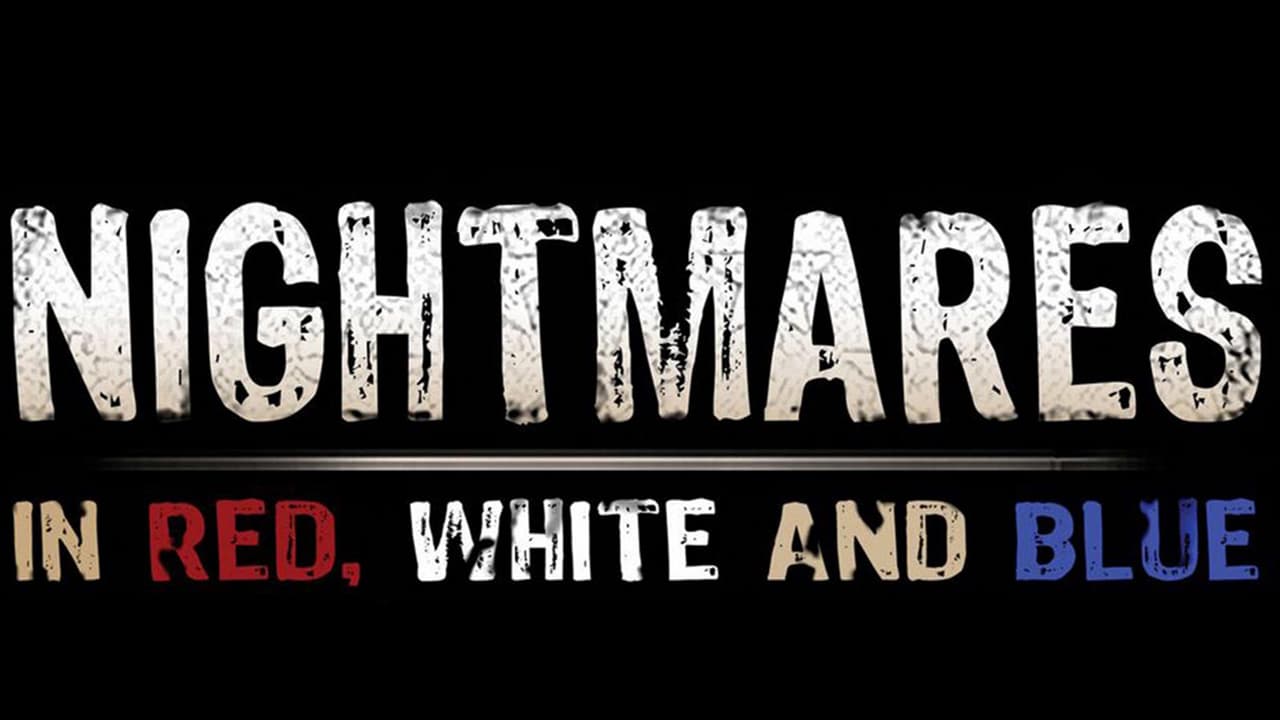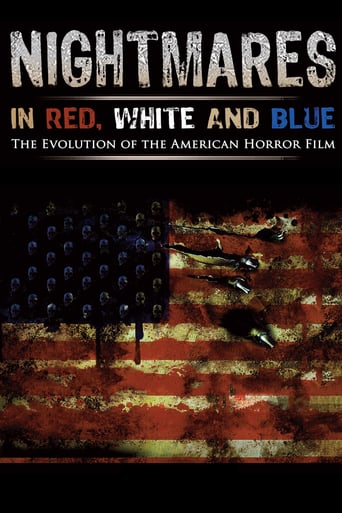

Wonderful character development!
... View Morejust watch it!
... View MoreGood films always raise compelling questions, whether the format is fiction or documentary fact.
... View MoreMostly, the movie is committed to the value of a good time.
... View MoreWith each coming decade, the history of horror films has always reflect the changing times, and the fears that accompany them. This documentary directed by Andrew Monument & adapted from the book of the same name by author Joseph Maddrey, tries to showcases that, by exploring its humble beginnings with silent era Gothic to 1930s Universal Monsters, to the Sci-Fi nightmares of the Atomic Age, to the present day reflection of real-world scares with 200 film clips of the various types within the horror genre, intercuts with archive news footages throughout the years. All divided into eight sections, each of which deal with a specific period of time and the socio-political context in which horror films of that era were born into. While, the idea of combining film from various sources to make something new is a controversial issue, with some people still, thinks it's stealing. I believe collage films like this, are fine, even if it seems like a glorious clip show. Nevertheless, it's still has problems in two important ways. One is the way, the documentary visually show them. "Nightmares in Red, White and Blue: The Evolution of the American Horror Film" doesn't present the film clips in their original aspect ratios, which means, that some of the film footages are zoomed way, too much to fit with the documentary's 1.78:1 frame or seemed cropped. Because of this, the film gives, somewhat half-ass blurry images of some of the subjects, tarnishing how good, these original films sources, honestly looked. Another problem with this approach, is how it cut down, on the suspense, that these scary imageries, were, original shown. It's really does strip down, the scare value. Only, leaving the somewhat distorted, out of context, disturbing fast-cut, quick blunt-force of violent gory imagery with large noises that could be, a little overwhelming to the senses & people's stomachs. The montages in this film can feel like being strapped to a chair, injected with drugs, and forced to watch films of sex and violence with your eyes propped open, as if it's 1971's 'A Clockwork Orange'. They can be a bit excessive & nauseating at times. Look, I get that the movie can't cover, all the material. That said, I love how all the film footages also supported, secondary by narrating from Lance Henriksen, whom does a great job, in establish credibility with his voice. However, I just wish, the information, that the filmmaker gave Heriksen wasn't so broad, without much context. After all, I really don't see much of a connection, in parallels between the charisma and motives of fictional antagonist Freddy Krueger of the Nightmare on Elm Street franchise and that of, former United States President Ronald Reagan, at all! Nor, how Leatherface from 'The Texas Chainsaw Massacre' can be compare with Osama bin Laden. Also, who though, it was a good idea, to brings in footage from 1969's "Easy Rider" and the James Bond films in a horror documentary? It doesn't make much sense. Another problem with the narrative is how short, some parts are. It really does make it seem, like they cut corners and really only skim the surface of a few pretty important moments in the evolution of the genre. I was really surprised that, the film didn't dig deep enough to explore the decline of the studio system, the rise of the independent movie movement, the advent of television, and the coming of the home video market. I get that, the movie can only go so far, but the whole sequence about the first ten years of the 2000s, seem a bit rushed. Look, I get that, streaming based viewing culture was still, starting out, when this movie was coming out, but, the documentary should had explore more, how the internet have change the industry, as a whole. It's kinda of, a big deal. Another thing, I think the film should get, some of their history, correct. After all, there were plenty of examples of events & movies, not fitting in with the chronological order, they were establishing with. Without going too much into detail, the idea that 1910's 'Frankenstein' is the first horror film is deeply wrong. I guess, the filmmakers never heard of 1896's 'The Devil's Castle' by film pioneer, Georges Méliès. Yes, I get that, it's technically, not an American film, but when talking the history of horror, you have to mention things like this, even if it's foreign. It doesn't make sense for a film to say that they will focus on Hollywood movies, yet talk about German Expressionist & Spanish Cinema and not much on Hammer Films, J-Horror or Italian Giallo. Obviously, a movie can't cover all the material that a book can, but to be fair, this movie should had been expanded into a three-part miniseries. It would had work better. The commentaries from the filmmakers, such as John Carpenter, Roger Corman, George A. Romero, Wes Craven, and others, would had more to say. Sadly, their interviews felt nothing, but sound-bites. Nothing really groundbreaking, came from their presence. It wasn't as entertaining and educational as it should had been. Overall: This documentary may not provide anything new for major horror fans, but it definitely worth seeing, even with its flaws. I just wish, it could had been better.
... View MoreThe documentary manages to present some very interesting opinions regarding the evolution of American horror, and while I did think it lacked a bit of comparison regarding the objectives of cinema as a whole, it does present some very interesting takes on what the horror movies try to express through time and how they evolved as audiences evolved.
... View MoreAn excellent documentary about American horror movies from Thomas Edison's 'Frankenstien' to 'The Mist'. It talks about the evolution of horror movies and the times they were made. But it it is interesting how these movies reflected their era. From the aftermath of World War I all the way to 9/11.I never figured Lance Hendrickson would be a good narrator, but he was. And I like all the film historian's insight. What's really cool is the interviews of the 'Masters of Horror', Mick Garris, John Carpenter, Larry Cohen, Joe Dante, etc... and how they all loved horror films as kids. I loved it when George Remero talks about 'The Thing', and his own 'Night of the Living Dead'. You find out horror directors are not sick, demented people. They simply make these movies because they enjoy them and the have a true passion for good horror movies. And they are not above shaking things up a bit as well.You find out true horror movies aren't always madmen killing sexually active teenagers in strange ways, but how true horror is all around us every day and these movies reflect that. It also shows horror films will never die. Like it or not they will always be with us.
... View MoreThe beginning of this movie was actually pretty good; I enjoyed the discussion (albeit brief) of the birth of horror films. It got a bit muddled when it entered the 30's and 40's...I feel like they were trying to make too many political points where none really existed.When it got to the 50's, that's really when the politics overtakes the discussion of the movies. This is partially because most of the directors grew up in or started directing in the 60's and they were all counter-culture types. Normally when you watch a documentary about something, you get a full view, not an utterly biased piece of propaganda...I'm sorry, comparing Ronald Reagan to Freddy Krueger as the scariest person in the 80's? Really??? Most Americans would disagree - I mean other than the staunchest leftists who see Obama as too conservative still hold any sort of vindictiveness for Reagan.If you were looking for a documentary about how these films came into being or where the horror genre has been and where it's going...eh, you'll get a very thin layer of that. The directors they have in here spend way too much time discussing how important their relatively unimportant films were in establishing the political tones (who really looks at horror movies for politics?) and too little time actually discussing American horror films.It would have been nice for them to discuss how British horror films influenced American horror films (Universal competing against Hammer for instance) or how authors like Edgar Allen Poe, Shirley Jackson, and Richard Matheson provided much of the fodder for the horror films in the 50's and 60's...other than a passing mention of Poe, there is no mention of any author other than Stephen King.This is a poor attempt to document the history of the horror film genre. There are plenty of clips from films, but they are far too brief to really enjoy. Too little time is given to too many films for there to be any real depth here. Ironically, there is almost no mention of contemporary horror films that actually are worthwhile...namely independent directors and films that aren't just blood and gorefests. Oh well! Don't bother with this.
... View More